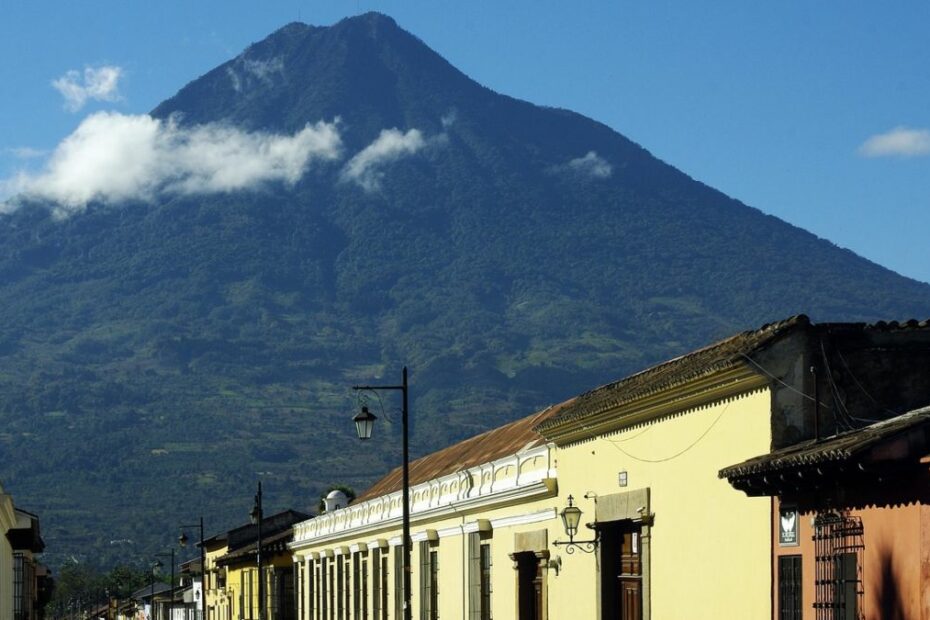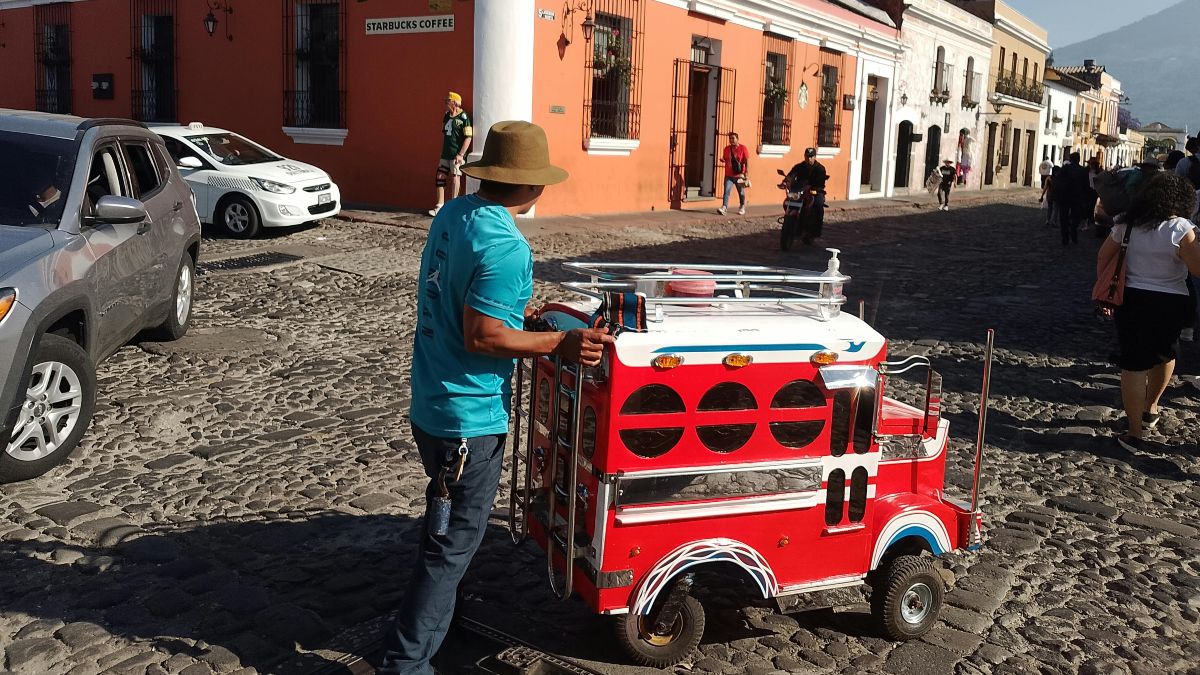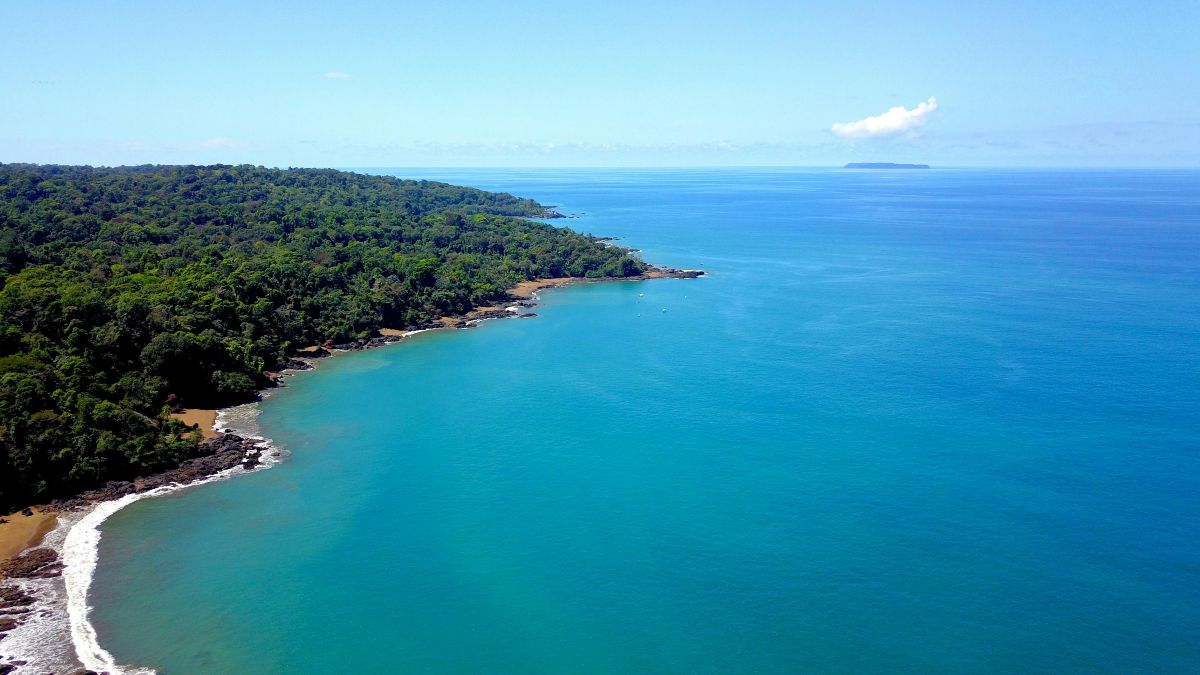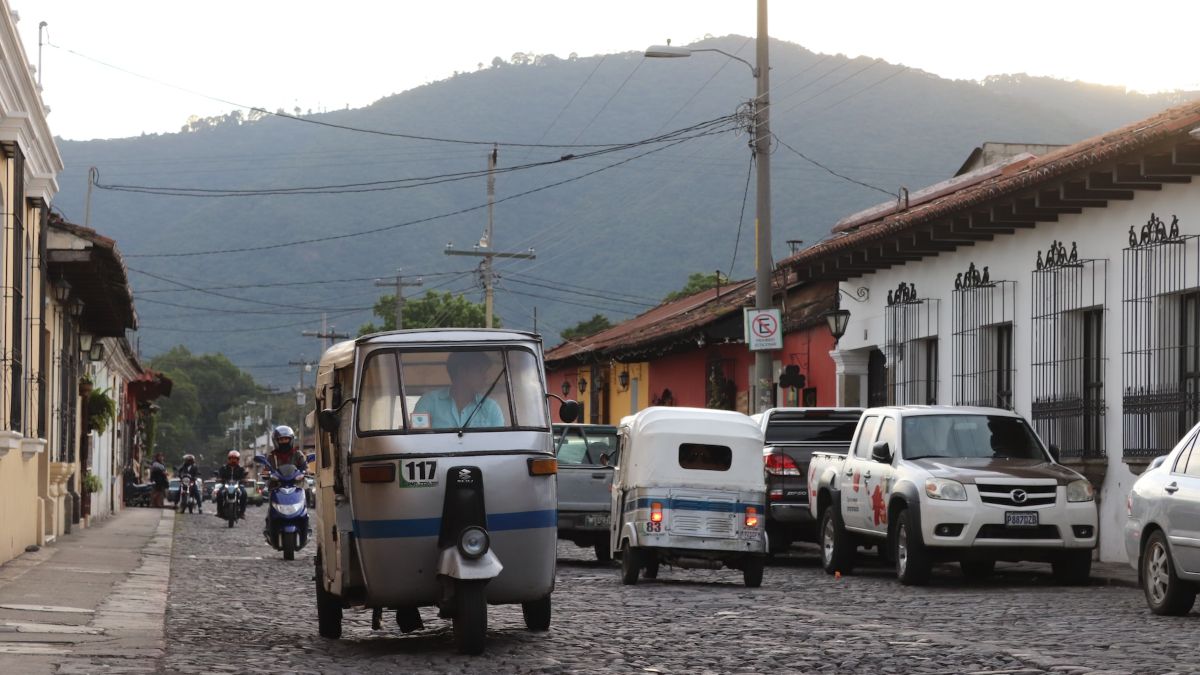Guatemala has developed a great reputation with travelers wanting to learn Spanish. Welsh travel blogger Alan Palazon spent 15 months in the Land of Eternal Spring and learnt to speak Spanish fluently. In this article, he breaks down why you should learn Spanish in Guatemala.
Learning Spanish — or any other language for that matter — is no easy feat. It takes dedication, time, and effort. There’s vocabulary to memorize, grammatical structures to internalize, and lots of speaking practice.
However, as a complete beginner, it’s possible to get your Spanish-learning journey off to an easier, and potentially more enjoyable, start. You can choose a country where Spanish is easier to understand, and where there are lots of opportunities to practice the language.
In my opinion, based on 15 months living there, Guatemala fits this bill perfectly. Below, I outline some reasons why choosing to learn Spanish in Guatemala will set you up for success.
View this post on Instagram
What makes learning Spanish in Guatemala better than other countries?
When deciding on where you want to learn Spanish, you should consider several aspects. These include how difficult the accent is to understand, whether there’s a local community for learning Spanish, the cost, and the variety of language schools. Let’s find out why Guatemala works for all these factors.
1. The accent is easier to understand
The Guatemalan Spanish accent is favorable. To the untrained ear, its neutrality makes understanding new vocabulary easier. The main reasons for this are that Guatemalans tend to pronounce letters ‘correctly’ and voice words from the throat, so-to-speak. What do I mean?
Well, for example, there’s no silent “s” like you’ll find in El Salvador and Nicaragua. Also, the ll letter (yes, this is a separate letter, not two Ls) sounds like a “y” and not like the “shh” sound that you’ll hear in, say, Argentina. Some Spanish accents can sound nasally, while guatemalteco sounds well-pronounced.
2. The pace of speech is generally slower
One of the most beneficial things I found about learning Spanish in Guatemala was that people tended to speak at a moderate pace.
Now, I still had to begin almost every conversation I had with “Puede hablar un poco más despacio, por favor?” (“Can you speak a little slower. please?”), at least during my first few months. But I had – and still have – much less trouble making sense of Spanish in Guatemala than elsewhere in Latin America and Spain.
Along with the moderate speaking pace, I also found Guatemalans tend to use less slang than elsewhere. For example, in Mexico, they use a bucketload more slang which is confusing for beginners. Of course, there are exceptions to all of this and you will come across Guatemalans who speak rapidly and use lots of slang. And, at times, this will make you question whether you’ve actually learnt anything at all.
However, I found this to be the exception and not the rule.
3. There’s a variety of ways to learn Spanish in Guatemala
You’re blessed with a range of ways to learn Spanish in Guatemala.
The country boasts an ample number of language schools, which often team up with local families to offer homestay experiences. A local family will open their home to you and provide you with meals, and you’ll get classes at the affiliated language school.
You can, of course, take classes or do a homestay separately to each other if that’s what you prefer. However, the benefit of combining them is that you get more opportunity for speaking practice once you leave the classroom. It’s also an opportunity to make a meaningful and lasting connection with locals.
Alternatively, or additionally, you can do what I did and find a private tutor. I did a work exchange at a hostel in Antigua, and the owner kindly agreed to paying for a few hours of tuition per week for a few months.
The biggest draw of private tuition is that the tutor can tailor classes to you. Also, private tutors in Guatemala often work with language schools, so there’s a good chance you’ll learn from someone with a solid background in language teaching.
4. Learning Spanish in Guatemala is affordable
How much does it cost to learn Spanish in Guatemala? This depends on the method you choose, the duration of your studies, and where you study. However, you’ll be surprised by how affordable it is.
For a one-week full immersion homestay with group classes, expect to pay around $200. The more hours of classes you take per week, the higher the price.
If you’re not after a homestay, then the price of a week of group classes at a language school starts at around $60. For one-to-one classes, you’re looking at around $10+ per hour. This price can go down, though, if you buy hours in bulk.
The cost of private tuition outside of a language school will vary greatly as teachers charge based on their experience. My private tutor charged around $6.50 per hour.
Remember that you might have ongoing and/or ad hoc costs too, such as textbooks.
5. Learning Spanish is welcomed in Guatemala
For me, one of the most enjoyable things about learning Spanish in Guatemala is that there is a real culture for it. It’s not just the language schools selling lessons that want you to learn, local people also encourage it.
I made a few good local friends during my time there and they actively helped me to improve my Spanish. They would challenge me to avoid speaking in English with them, even if they spoke my native tongue fluently.
And it wasn’t just my friends. In general, I found locals in Guatemala to be open, friendly people who enjoyed having a conversation. I rarely felt a sense of language barrier while living there and I put that down to the locals who want you to speak their language.
Where should you learn Spanish in Guatemala?
There are many good places to learn Spanish in Guatemala. Antigua and Quetzaltenango (Xela) are ‘hubs’ where lots of learners base themselves. And there are also other locations with a language learning presence, but aren’t as busy.
Antigua
This is where I lived for most of the 15 months I spent in Guatemala. Antigua is a UNESCO world heritage site visited by all types of tourists, from budget backpackers to luxury hotel stayers. The main draw is its colorful Spanish colonial architecture and beautiful volcanic surroundings.
For Spanish language learners, the town is a fantastic base thanks to the number of language schools. There are several, but the main ones include:
- La Union (I briefly worked here as an English teacher)
- Maximo Nivel
- InterContinental Spanish Academy
- Enforex
- Ixchel
Quetzaltenango (Xela)
Quetzaltenango, also known as Xela, is the second largest city after Guatemala City. Like Antigua, you’ll find colonial style architecture here. However, unlike the quaint Antigua, being a city, Quetzaltenango doesn’t have quite the same charm.
Xela is what I consider to be the second Spanish learning ‘hub’ in Guatemala, and many travelers settle down here for a few weeks to pick up the basics.
The city boasts an array of schools and the main ones include:
Lake Atitlán
Lake Atitlán should be on the list of places to visit for all travelers in Guatemala, not just language learners. This huge lake is the deepest in Central America, and surrounded by volcanoes. Dotted around its shores are several small towns and villages. San Pedro La Laguna and Panajachel are two of the busier ones, where you’ll find most of the Spanish schools, including the Lake Atitlán Spanish School, San Pedro Spanish School, Cultural Spanish School, Jardin de America Spanish School, and the Jabel Tinamit Spanish School.
The beauty of learning Spanish here is that you can easily escape the somewhat English-speaking hustle and bustle of San Pedro and Panajachel by hopping on a boat to one of the quieter towns. San Lucas and San Antonio Palopó, for example, aren’t well-known to travelers, meaning you’ll have much more opportunity to put your new Spanish skills to the test.
View this post on Instagram
If the language is a priority for you in Central America, then I highly recommend you learn Spanish in Guatemala.
The country is beautiful, affordable, friendly, and well set up for students to become proficient in Spanish in a short time. I hope this article will be helpful for you when looking for a place to study español.
Alan Palazon is a Welsh travel blogger who loves raw, outdoor adventure travel. He documents his adventures on his blog, A World Over.




